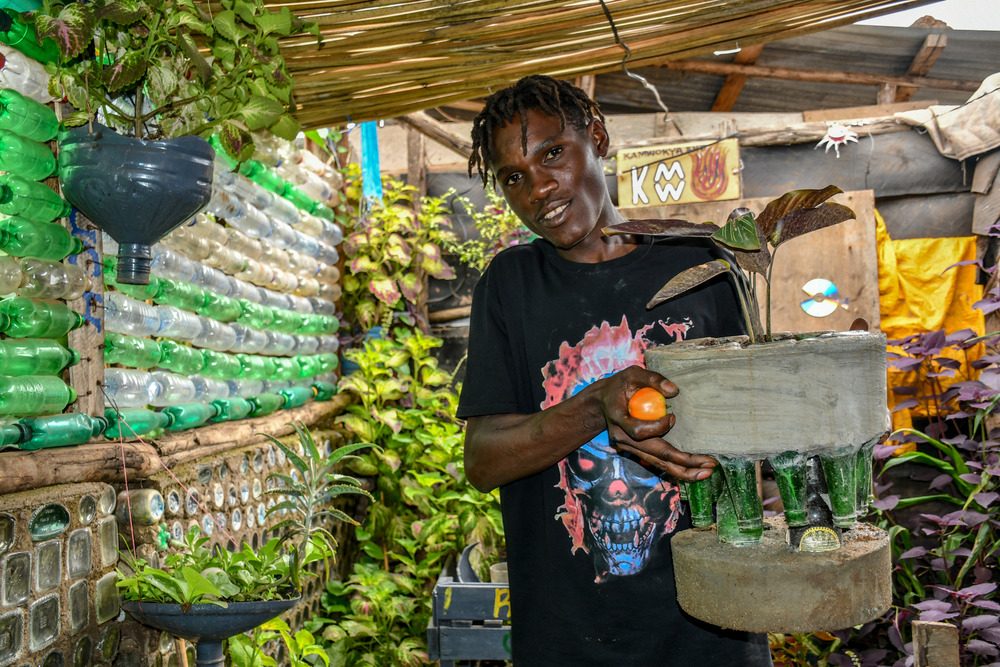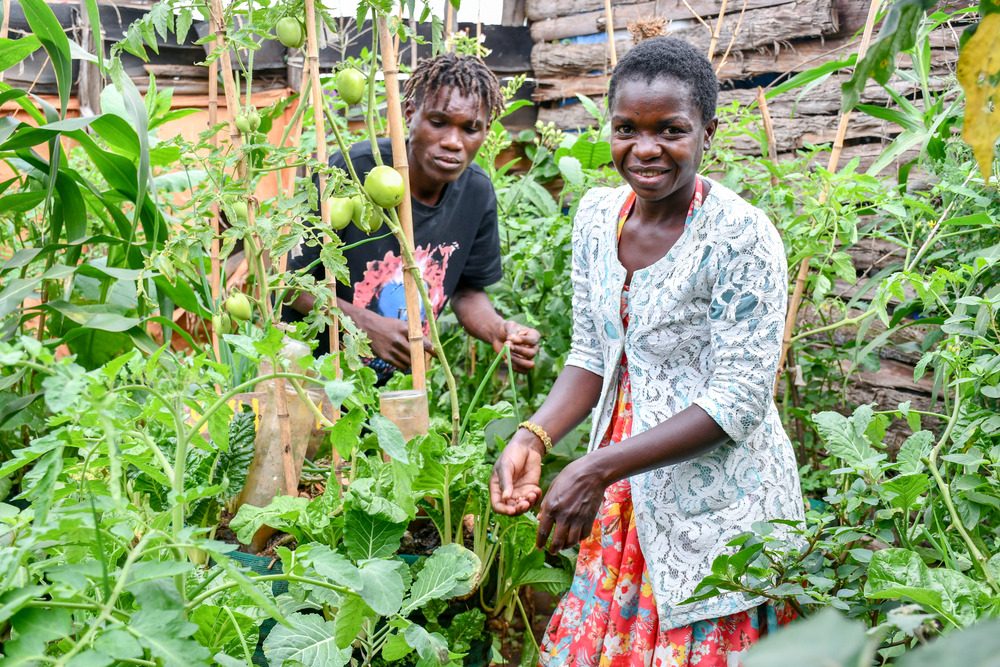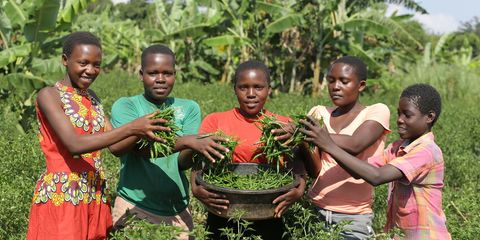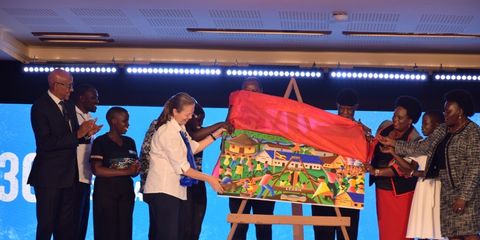Ghetto youth keep Kampala city green
Muhamed is the leader of a group of young people who are making a living from recycling rubbish in a Kampala slum.

In the middle of a slum in Kampala city, is 24-year-old Muhamed Bogere Sconto, the leader of the former ghetto boys, a group that recycles used objects to save the environment. The group of 10 youths (3 girls and 7 boys) are aiming to improve living conditions in the slum areas that have been destroyed due to congestion.
Waste reused to conserve environment
The former ghetto boys are often seen in the city picking up used plastic bottles from the dustbins, drainages and rubbish pits in the city and recycle these into other valuable products like tables, chairs, flower vessels, plates, decorations and flower pots.
Sconto says he underwent environmental conservation training from Uganda Youth Development Link (UYDE) in partnership with Plan International Uganda, before embarking on his conservation activities. The groups also leant how to live safely in the city, and to avoid drug abuse and sexual reproductive health issues.
Making a living from waste
“Plan International gave us Sh500,000 (137.7USD) and we bought a glass cutter,” says Sconto. The group cuts the old breakable bottles to make glasses. Sconto says people collect old wine bottles and bring them to him to cut and turn into drinking glasses.
“These containers are picked from the community so we use them to plant the crops.”
Muhamed
The young people also practice urban farming. “We grow vegetables such as tomatoes, onions, egg-plants, maize, and spices among others in gardens made using sacks and used containers,” says Sconto. “These containers are picked from the community so we use them to plant the crops. We do not need to have gardens, the containers are our gardens.”

“We grow and sell flowers each at Sh5,000 (1.4USD). We always sell to the community. In a month we make Sh90,000 (24.8USD). Sometimes we sell vegetables to the community worth Sh170,000 (46.8USD) per month. We also eat them for nutrition,” he says.
“From the time we got the cutter, we have made over 3,000 glasses. Every week, we cut 50 glasses, and each we sell at Sh5,000(1.4USD). Our main market is within the community and some visitors who buy once in a while.”
The group takes part in Plan International’s Safe and Inclusive Cities project which works towards a safer city through environmental conservation activities.
Categories: Emergencies, Skills and work


